Abstract
The road development project between Turkey, Iraq, the United Arab Emirates, and Qatar aims to improve port and transportation network services. This new route is expected to operate at full capacity by 2029 and will serve as an alternative to the Red Sea-Suez Canal route, improving accessibility for individuals, reducing trade expenses, and simplifying international and regional trade routes.
The project is set to begin in 2024 and will be implemented in three phases until 2050, with a budget of $17 billion. This development can potentially serve as an important conduit between Asia and Europe, reducing China-Europe transportation time by 20-25 days.
Key Themes
1- The “Development Road” project represents a significant shift in political geography for Iraq, aiming to establish road and railway infrastructure that will link the Arabian Gulf to Turkey through Iraq.
2- This development initiative is crucial for fostering political stability and economic advancement in Iraq.
3- There are substantial challenges that could hinder the project’s success, including political instability, financial uncertainties, and conflicting interests among neighboring countries in the region.
Introduction
The long-held dream of establishing a prominent port in the city overlooking the Gulf coast has been a cherished goal of the Iraqi people, yet its realization has been continually thwarted by the tumultuous events that have plagued the nation over the years. From the Iran-Iraq war to the fallout of the American invasion that toppled Saddam Hussein’s regime in 2003, Iraq has faced a series of conflicts that have hampered progress toward this significant endeavor.[1]
On the political front, Iraq is making significant strides on the international stage. Following the 2021 federal elections, political leaders appointed Mohammad Shi’a Al-Sudani as prime minister in October 2022. His agenda revolves around combating corruption, tackling unemployment, reducing poverty, implementing financial reforms, and enhancing government services. In June 2023, the Iraqi parliament greenlit a record budget of 198.9 trillion Iraqi dinars (equivalent to 153 billion US dollars) for the three years from 2023 to 2025[2].
Under the leadership of Prime Minister Mohammed Shia’ Al Sudani, Iraq has introduced an ambitious international initiative called the “Development Road” project, with the pivotal Al-Faw port serving as its cornerstone. Embracing the project as a potent symbol of political and geographical significance, the government has strategically prioritized the concept of the “development road,” emphasizing its historical roots and the promise it holds for the future. With Iraq charting a course toward stability and adhering to the government’s specified timelines, there is a palpable momentum propelling the project toward fruition.[3]
As these initiatives materialize, it becomes increasingly apparent that the groundwork being laid today is poised to usher in a transformative shift a metamorphosis that may have seemed inconceivable a mere decade ago.[4]
Iraq has launched a $17 billion project to develop the infrastructure connecting the Grand Port to the Persian Gulf to Turkey through railway and road networks. This project aims to create a new link between Asia and Europe, potentially changing the geographical region’s map. If successful, it could enhance Iraq’s geopolitical situation, establish the area as a commercial passage, and provide financial returns and job opportunities, reducing the state’s reliance on hydrocarbons due to increased political stability. The Iraqi government plans to officially begin the project in 2024, with three stages extending until 2050.[5]
In February 2024, Iraq’s gold reserves saw a significant increase, with the International Monetary Fund reporting a rise of 3.079 tons, bringing the total to 145.661 tons. This increase comes when global gold prices have reached record highs, exceeding $2400 per ounce. Iraq ranks fourth in the Arab region for gold reserves, following Saudi Arabia, Algeria, and Morocco.[6]
Despite concerns about internal political divisions and potential insecurity, Iraq has taken economic and political steps with China, positioning itself strategically amidst regional competition for geological and geopolitical advantages. This includes involvement in Belt projects and roads in China, the economic corridor in India, and Iran’s aspirations to become a trading platform.[7]
How did Iraq come up with the idea for the development path?
The government initiated the project in 2010 and laid the foundation stone in April. The estimated cost of the project was 4.4 billion euros. The first phase involved establishing a local holding company. Daewoo, a South Korean company, was responsible for constructing the western breakwater at the port site, while the Greek Archirodon Group NV company was in charge of the eastern breakwater. The second phase was planned to include digging the port basin and deepening the port’s navigational channel. However, the project was halted at this stage due to financial obstacles.[8]
Iraq then encountered further challenges with Kuwaiti restrictions on Khor Abdullah and the port of Al-Faw. Despite these obstacles, Iraq decided to alter the navigation channel leading to the large port of Al-Faw to avoid passing through Kuwaiti territory. In 2020, Baghdad signed a $2.625 billion contract with South Korea’s Daewoo Engineering and Construction Company to complete the first phase of the port within four years. [9]
Following Prime Minister Mohammed Shia’ Al Sudani, the significance of the project was underscored, with the Prime Minister labeling it as “the future project for Iraq.” To guarantee its uninterrupted progress and development, the project has been officially recognized as a strategic initiative within the budget. This designation aims to ensure that the project moves forward smoothly and efficiently, without facing any delays or obstacles that could impede its success in shaping the future of Iraq.[10]
The Al-Faw Grand Port and Development Road project is expected to begin operations with the arrival of the first ship at the port in Basra in 2025. Full operation is projected for 2038, making it the largest port in the Middle East and boosting Iraq’s regional importance. The development road will connect the port to Turkey, enhancing Turkey’s regional influence. Plans include highways, railways, land roads, and tunnels between the ports of Umm Qasr and Al-Faw, as well as establishing new industrial zones and a cargo airport to optimize the project’s efficiency.[11]
By 2029, the Al-Faw Port and development road will create a new trade route, serving as an alternative to the Red Sea – Suez Canal route. This port will significantly reduce transportation time between China and Europe by 20-25 days, thanks to its greater depth capacity compared to the Suez Canal, accommodating larger cargo ships.[12]
Iraq has launched a groundbreaking $17 billion infrastructure project to establish a vital link between the Grand Port and the Gulf, connecting to Turkey through a comprehensive network of railways and roads. This ambitious initiative aims to create a new pathway between Asia and Europe, potentially reshaping the geopolitical dynamics of the region. If successful, it could significantly enhance Iraq’s strategic position as a commercial gateway, reduce its dependence on hydrocarbons, and stimulate economic growth by generating job opportunities.[13]
Scheduled to kick off in 2024 and unfold in three phases until 2050, the project holds immense promise. However, Iraq faces a myriad of challenges stemming from years of armed conflict and internal divisions. Despite a period of relative stability post the American invasion in 2003, Iraq remains fragile and fragmented, posing obstacles to financing and executing such a monumental endeavor, an encouraging development is the notable increase in Iraq’s gold reserves in February 2024, aligning with the global trend of rising gold prices amidst heightened geopolitical tensions. As the fourth-largest holder of gold reserves in the Arab region, Iraq is well-positioned to leverage its precious metal assets during market uncertainties and fluctuations.[14]
On the political front, Iraq is undergoing a transformative phase with international support. Following the 2021 federal elections, Muhammad Shi’a Al-Sudani was appointed as prime minister, focusing on key issues such as combating corruption, addressing unemployment, poverty reduction, financial reform, and enhancing government services. The approval of a record-breaking annual budget in June 2023 underscores Iraq’s commitment to economic development and stability.[15]
Despite these positive strides, concerns linger regarding internal political divisions and potential insecurity, which could deter investors and partners interested in Iraq’s development trajectory. Nevertheless, Iraq has taken strategic economic steps, including forging partnerships with China, positioning itself amidst regional economic competition, and engaging in key infrastructure projects that could bolster its role as a pivotal trade hub in the region.[16]
Turkey’s interest
Turkey’s interest in Iraq has been piqued by the exclusion from an economic corridor project between India, the Gulf, and Europe, announced during the G20 summit in September 2023. This exclusion prompted Turkey to support the Iraqi project with vigor. This interest is part of a broader shift in Turkish foreign policy priorities towards regional cooperation. The Iraqi project signifies political stability for Iraq and signals a change in the Arab region, showing Iraq’s openness to Turkish participation.[17]
The success of the project would bring economic benefits to both countries. Turkey aims to strengthen its economy, which has faced numerous crises, while Iraq seeks to diversify its income sources beyond oil. Turkey already has the necessary infrastructure on its side, with the remaining task being the rehabilitation and construction of infrastructure in Iraq.[18]
Qatar, the UAE, and Turkey have shown interest in financing the project, indicating that Iraq will need to use its resources for funding. Iraq’s heavy reliance on oil revenues, which make up 90% of its income, underscores the importance of diversifying its economy through projects like this.[19]
Emirates’ Interest
The UAE’s participation in the project is crucial for establishing multiple corridors for transporting goods and passengers between different regions of the world. It is one of the countries included in the Indian-Middle Eastern corridor that extends to Europe. In April, the Abu Dhabi Ports Company signed an agreement with the General Company for Ports in Iraq to develop the Grand Al-Faw Port.[20]
The UAE aims to create a broader umbrella that goes beyond its geographical borders through cooperation with brotherly and friendly countries. This cooperation is meant to strengthen the values of collaboration and establish a global humanitarian community that stands together to face global challenges. Collective efforts will be dedicated to achieving development goals in all humanitarian aspects, not just with Iran as a neighbor.[21]
Qatar’s Interest
Qatar is increasing its investments in Iraq, highlighting the significance of Iraq’s location at the crossroads of regional routes. Since June 2023, Qatar has been engaging in projects and investments in Iraq, signing a series of bilateral agreements to enhance its economic presence. These agreements are expected to bring Qatari investments in Iraq to over $9 billion. [22]The Investment Holding Group revealed an investment plan in Iraq as part of a memorandum of understanding signed during the Emir of Qatar’s visit to Baghdad in 2023. The group secured agreements worth $7 billion with the Iraqi National Investment Authority, focusing on real estate and tourism development, hospital operations, construction of residential complexes, and luxury hotels to boost Iraq’s tourism sector.[23]
In April 2023, the Qatari company Milaha, specializing in maritime and logistical services, announced its expansion to include shipping goods to the port of Umm Qasr in southern Iraq. This move aims to streamline the transportation of goods between Iraq and the Gulf Cooperation Council countries.[24]
Challenges and Obstacles
Iraq’s development plan aims to transition the country from an unstable state to the most concentrated and invested in the region. However, it may take years before Iraq can fully realize this project. This is not the first time Iraq has attempted such a massive infrastructure project.
There are challenges facing Iraq that could postpone the project. Firstly, the uncertainty of the global economy could potentially affect Iraq. Iraq heavily relies on oil revenues to build its budget, and with the decline in international oil prices, the government has decided to reduce expenditures on many projects and implement new policies.[25]
Secondly, external challenges like investment competition between China and the United States could hinder success. The United States intervened after the war in Iraq, which may pose additional obstacles in the future.[26]
Conclusion
Iraq has numerous factors that can contribute to its progress and development, particularly considering its strategic location. With the backing of relevant stakeholders, Iraq has the potential to construct the largest port in the Middle East effectively, garner substantial benefits from the project, and leverage it as a means to enhance the diversification of the Iraqi economy.
There is a notable willingness among Iraqi political parties to endorse and aid in implementing this pivotal project, recognizing its vital role in the reconstruction of the country’s infrastructure. The Iraqi government must exert concerted efforts towards successfully completing this project, as its successful realization can significantly transform and revitalize Iraq’s economic landscape.
References
[1] Fildişi Ajans,. “The Path to Development: Iraq’s Future Vision.” ,Septamber 2, 2023. https://www.orsam.org.tr/ar/kalkinma-yolu-irakin-gelecek-vizyonu/.
[2] Fildişi Ajans, “Center for Middle Eastern Studies.” ORSAM, May 13, 2024. https://www.orsam.org.tr/en/qatar-and-the-uae-joining-the-development-road-project-motivations-and-benefits/.
[3] Knowledge. “The Large Port of Al-Faw.” Knowledge, 2024. https://www.marefa.org/%D9%85%D9%8A%D9%86%D8%A7%D8%A1_%D8%A7%D9%84%D9%81%D8%A7%D9%88_%D8%A7%D9%84%D9%83%D8%A8%D9%8A%D8%B1.
[4] Bovenizer, Noah. “Iraq’s Development Road Bolstered by Turkey, Qatar, UAE Co-Operation.” Railway Technology, April 29, 2024. https://www.railway-technology.com/news/iraq-development-road-turkey-qatar-uae/.
[5] Omayma al-Shatheli, “The Development Road: An Opportunity to Develop Infrastructure and Connect East and West” , BBC News, May 28, 2023, https://www.bbc.com/arabic/middleeast-65732210.
[6] Hasan, Harith. Iraq’s development road: Geopolitics, rentierism, and border connectivity – carnegie middle east center – carnegie endowment for international peace, March 11, 2024. https://carnegie-mec.org/2024/03/11/iraq-s-development-road-geopolitics-rentierism-and-border-connectivity-pub-91939.
[7] Calabrese, John. Iraq’s “development road”: Rough terrain ahead – modern diplomacy, May 4, 2024. https://moderndiplomacy.eu/2024/05/04/iraqs-development-road-rough-terrain-ahead/.
[8] Yousif. “Iraq and the Return to the Development Path.” IFPMC, September 10, 2021. https://ifpmc.org/iraq-and-the-return-to-the-development-path/.
[9] Knowledge. “The Large Port of Al-Faw.” Knowledge, 2024. https://www.marefa.org/%D9%85%D9%8A%D9%86%D8%A7%D8%A1_%D8%A7%D9%84%D9%81%D8%A7%D9%88_%D8%A7%D9%84%D9%83%D8%A8%D9%8A%D8%B1.
[10] Alaa Thabet. The Iraqi Prime Minister in an interview with Al-Ahram: Egypt is a support for Iraq… and the economic partnership is the lever of bilateral cooperation, March 21, 2024. https://gate.ahram.org.eg/.
[11] Reuters. Qatar to invest $5 billion in Iraq over coming years | reuters, 2023. https://www.reuters.com/world/middle-east/qatar-invest-5-bln-iraq-over-coming-years-2023-06-15/.
[12] Agencies, Daily Sabah with. “Türkiye, Iraq, Qatar, UAE Sign Deal on Development Road Project.” Daily Sabah, April 22, 2024. https://www.dailysabah.com/business/economy/turkiye-iraq-qatar-uae-sign-deal-on-development-road-project.
[13] Sabena Siddiqui“Can $20b Iraq Development Road Project Rival India-Middle East Corridor?” Al, 2024. https://www.al-monitor.com/originals/2024/04/can-20b-iraq-development-road-project-rival-india-middle-east-corridor.
[14] Times, Global. “UAE, Iraq, Turkey, Qatar Sign Mou on ‘Development Road Project.’” Global Times, April 23, 2024. https://www.globaltimes.cn/page/202404/1311107.shtml.
[15] Bovenizer, Noah. “Iraq’s Development Road Bolstered by Turkey, Qatar, UAE Co-Operation.” Railway Technology, April 29, 2024. https://www.railway-technology.com/news/iraq-development-road-turkey-qatar-uae/.
[16] Middle East Council for International Affairs. “Qatar’s Investments in Iraq.” Middle East Council on Global Affairs, April 16, 2024. https://mecouncil.org/publication/%D8%A7%D8%B3%D8%AA%D8%AB%D9%85%D8%A7%D8%B1%D8%A7%D8%AA-%D9%82%D8%B7%D8%B1-%D9%81%D9%8A-%D8%A7%D9%84%D8%B9%D8%B1%D8%A7%D9%82-%D8%AA%D9%88%D8%B3%D9%91%D8%B9-%D8%A7%D9%84%D8%B9%D9%84%D8%A7%D9%82%D8%A7/?lang=ar.
[17] Saeed, Yerevan, Mehmet Alaca, Naser Alsayed, Ali Alfoneh, and Eleonora Ardemagni. “Erdogan’s Landmark Baghdad Visit Signals Support for Ambitious Infrastructure Project.” Arab Gulf States Institute in Washington, May 6, 2024. https://agsiw.org/erdogans-landmark-baghdad-visit-signals-support-for-ambitious-infrastructure-project/.
[18] Qaed, Anas Al. “From Concerns to Collaboration: Turkey, Iraq, Kuwait and the Development Road Initiative.” Gulf International Forum, May 10, 2024. https://gulfif.org/from-concerns-to-collaboration-turkey-iraq-kuwait-and-development-road/.
[19] Bovenizer, Noah. “Iraq’s Development Road Bolstered by Turkey, Qatar, UAE Co-Operation.” Railway Technology, April 29, 2024. https://www.railway-technology.com/news/iraq-development-road-turkey-qatar-uae/.
[20] Knowledge. “The Large Port of Al-Faw.” Knowledge, 2024. https://www.marefa.org/%D9%85%D9%8A%D9%86%D8%A7%D8%A1_%D8%A7%D9%84%D9%81%D8%A7%D9%88_%D8%A7%D9%84%D9%83%D8%A8%D9%8A%D8%B1.
[21] Skynewsarabia. “The UAE Confirms Its Keenness to Strengthen Its Strategic Partnership with Iraq.” Skynewsarabia, April 1, 2024. https://www.skynewsarabia.com/business/1703899-%D9%85%D8%B3%D8%A7%D9%87%D9%85%D9%88-%D8%A7%D9%94%D8%AF%D9%86%D9%88%D9%83-%D9%84%D9%84%D8%BA%D8%A7%D8%B2-%D9%8A%D9%82%D8%B1%D9%88%D9%86-%D8%AA%D9%88%D8%B2%D9%8A%D8%B9%D8%A7%D8%AA-%D8%A8%D9%80-325-%D9%85%D9%84%D9%8A%D8%A7%D8%B1-%D8%AF%D9%88%D9%84%D8%A7%D8%B1-2023.
[22] Reuters. Qatar to invest $5 billion in Iraq over coming years | reuters, 2023. https://www.reuters.com/world/middle-east/qatar-invest-5-bln-iraq-over-coming-years-2023-06-15/.
[23] Rasheed, Ahmed. Qatar emir in Baghdad, mous on Energy, Investment signed | Reuters, June 16, 2023. https://www.reuters.com/world/middle-east/qatars-emir-arrives-baghdad-official-visit-statement-2023-06-15/.
[24] Middle East Council for International Affairs. “Qatar’s Investments in Iraq.” Middle East Council on Global Affairs, April 16, 2024. https://mecouncil.org/publication/%D8%A7%D8%B3%D8%AA%D8%AB%D9%85%D8%A7%D8%B1%D8%A7%D8%AA-%D9%82%D8%B7%D8%B1-%D9%81%D9%8A-%D8%A7%D9%84%D8%B9%D8%B1%D8%A7%D9%82-%D8%AA%D9%88%D8%B3%D9%91%D8%B9-%D8%A7%D9%84%D8%B9%D9%84%D8%A7%D9%82%D8%A7/?lang=ar.
[25] Hasan, Harith. Iraq’s development road: Geopolitics, rentierism, and border connectivity – carnegie middle east center – carnegie endowment for international peace, March 11, 2024. https://carnegie-mec.org/2024/03/11/iraq-s-development-road-geopolitics-rentierism-and-border-connectivity-pub-91939
[26] Knowledge. “The Large Port of Al-Faw.” Knowledge, 2024. https://www.marefa.org/%D9%85%D9%8A%D9%86%D8%A7%D8%A1_%D8%A7%D9%84%D9%81%D8%A7%D9%88_%D8%A7%D9%84%D9%83%D8%A8%D9%8A%D8%B1.
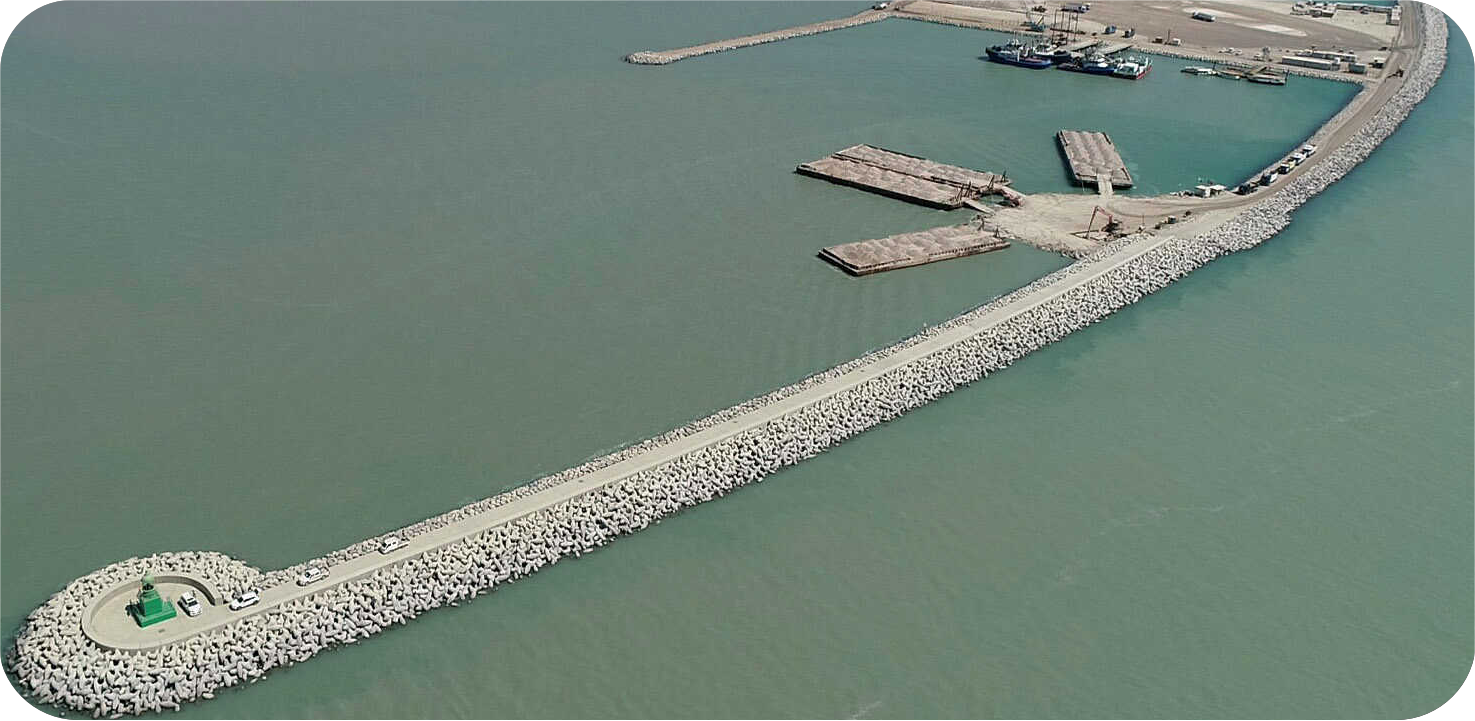
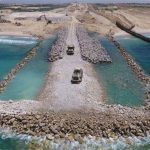
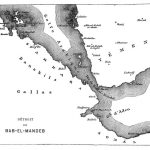
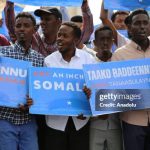
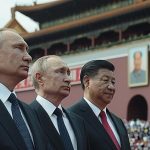
Conrad4101
Awesome https://is.gd/tpjNyL
Bryan974
Very good https://is.gd/tpjNyL
Kendra3630
Awesome https://shorturl.at/2breu
Judith2831
Very good https://lc.cx/xjXBQT
Fallon4030
Awesome https://short-url.org/10VGf
Brayden4538
Awesome https://t.ly/tndaA
Reed3737
Very good https://is.gd/N1ikS2
Erin1479
Very good https://is.gd/N1ikS2
Nigel725
Super https://shorturl.fm/6539m
Ava3186
https://shorturl.fm/TbTre
Isaac4615
https://shorturl.fm/YvSxU
Gavin4249
https://shorturl.fm/6539m
Danny1265
https://shorturl.fm/XIZGD
Gwen3024
https://shorturl.fm/oYjg5
Harvey1773
https://shorturl.fm/bODKa
Sean1867
https://shorturl.fm/TDuGJ
Cornelius4404
https://shorturl.fm/retLL